According to industry sources, almost 46% of adults responded to surveys by admitting they either did not contribute to an employer’s retirement plan, or contributed very little into such plans. Only 16% of the respondents said they invested more than 15% of their income, and virtually all of the respondents acknowledged that they knew more should be invested toward retirement goals.
Someday we will all retire, or at least slow down. The question is, how prepared will you be for that day? First, I would suggest that its never too late to begin saving for retirement, and no amount is too small. Secondly, contact your plan administrator and determine the degree by which your contributions will be matched. That’s free money that you shouldn’t leave on the table. Third, I would suggest to anyone that you shouldn’t neglect retirement while focusing on other objectives and expenses. Build it into your budget. It will be deducted on a pre-tax basis and before you ever see it, so the “out of sight, out of mind” principal will help in this process.
I often find that people under participate in a qualified plan for lack of familiarity. I am a Section 3(21) qualified plan fiduciary. I not only work with companies in the creation of qualified plans, but I also work with sponsors of existing plans and their employees to help educate them about the benefits and mechanics of such plans. The Department of Labor offers many publications about the fiduciary responsibilities of a plan sponsor, and I often work with companies to help them meet those obligations to their employees. My advice would be to ask your employer if such an educational partnership already exists, or to contact a 3(21) financial specialist to assist you in the enrollment and investing process, rather than doing nothing.
As you consider participating in such plans, I would suggest that you evaluate several aspects of the plan. Pay attention to fees. Fee disclosures are required to be provided to participants, and over time, the internal expenses of funds and plan costs could be significant. I would also research the plan to determine rates of matching, frequency of communication, the provision of web based portals of access, tools for retirement planning calculations, and whether or not options exist for a self directed portfolio. Some qualified plans offer a “Roth” account, and the option to directly transfer balances from the plans of previous employers. While I don’t recommend taking loans from the plan, it would also be a good idea to understand the limitations that would apply to requesting loans from the plan if needed.
Qualified plans aren’t cast from the same mold, and yes, there are some good and not so good plans out there. At a high level though, a 401(k) or other similar plan can be a fantastic tool to use for retirement planning. If you haven’t started yet, its not too late. Don’t leave an employer’s match on the table. Just start. Build it into your budget, and work with a professional to help in the design of your portfolio.







